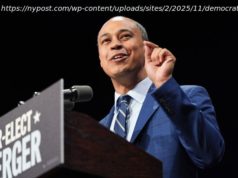The proposed law prohibits schools from taking actions against students who cannot afford meals or owe money for meals.
Louisiana’s Senate Education committee voted in favor of a bill Wednesday (March 28) that would cancel the practice among public elementary and secondary schools of denying meals to students who are unable to pay for them.
Senators voted 7-4 in favor of Senate Bill 284, which would require school governing authorities to provide an alternative meal to a student who requests the meal, regardless of whether he has money to pay or owes money for meals. It would also require Louisiana’s Education Department to work with schools and school districts that are eligible and interested in participating in the federal Community Eligibility Provision, which allows certain schools and districts to serve breakfast and lunch at no cost to enrolled students without collecting individual free and reduced lunch applications.
The measure will now move to the House floor for debate, and it will still have to move through the Senate. The bill’s sponsor, State Rep. Patricia Smith, D-Baton Rouge, argued that children should not be held accountable for the responsibilities of their parents.
The proposed law also prohibits school authorities from taking actions against these students that include publicly identifying them with wristbands or other markers, scolding them in any way for being unable to pay, requiring them to do chores for meals, forcing them to throw away a meal after it was served, or withholding school privileges.
„The whole thing is we’re trying not to stigmatize the kids and that’s the right thing to do,“ State Rep. Scott Simon, R-Abita Springs, said in support of the bill.
Under Smith’s bill, school authorities will have to direct communications about amounts owed for meals to the parent and not the student. School authorities will also have to document each instance that a child is given an alternative meal. That documentation would have to be given to the state schools chief, and upon request, the secretary of the Department of Children and Family Services, as well as the House and Senate education committees.
If 10 or more school meals are not paid in a school year, and school authorities suspect neglect or abuse, school authorities will be allowed to report it to the Department of Children and Family Services.
Under the proposed legislation, those schools which do not participate in CEP will be required to provide meals to students regardless of their ability to pay, according to a fiscal note attached to Smith’s bill. The bill also further increases the financial liability of the district because the proposed legislation includes high school students.
Jeanie Donovan, policy director for the Louisiana Budget Project, which advocates for low- and moderate- income families, said schools will be able to get some reimbursements from the federal government for the alternative meals given to students.
Donovan also said this bill should not incur a significant amount of debt for schools because this issue is not rampant across Louisiana. She said state Education Department data found that schools statewide only denied 439 meals last year. Even so, Dr. Rachel Herdes, a pediatrician from Children’s Hospital New Orleans, said the school meals could be the one full meal some students eat at all that day.
„No child should go a whole day without eating something nutritious,“ Herdes said.
Opponents of the bill, including Louisiana Association of Principals Executive Director Debra Schum, argued that schools could end up with more debt under this bill. She advised lawmakers to figure out how parents can actually pay their school lunch debt.
Smith argued that school districts cannot wait until parents owe „hundreds of dollars“ to begin collections because some parents will be unable to pay it back at that point. She also said Louisiana’s Office of Debt Recovery is another means that schools can use to collect debt from parents.
„I don’t think that schools have utilized all of their efforts in being able to collect the money, and I was informed today that Debt Recovery is willing to look into working with school districts to help them collect the money,“ Smith said.
. . .
Wilborn P. Nobles III is an education reporter based in New Orleans. He can be reached at wnobles@nola.com or on Twitter at @WilNobles .






